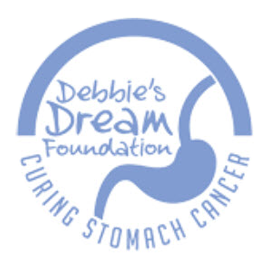It has been previously accepted that gastric cancer follows the damage and subsequent loss of acid-secreting cells in the stomach, but recent studies published in Gastroenterology by researchers at the Washington University School of Medicine and the Siteman Cancer Center of Barnes-Jewish Hospital challenged that paradigm. In a mouse model, the researchers found that damage to those acid-secreting cells, on its own, is not sufficient to transform the cells of the stomach into cancerous cells. While it was thought that the dying cancer cells were providing the signal to nearby cells to drive precancerous metaplasia, the results suggest that the signals are coming from somewhere else, according to Joseph Barclaff, a doctoral student in the lab of Jason C. Mills, MD, PhD, a professor of medicine in the division of Gastroenterology. Understanding the mechanism behind the development of metaplasia will, argues Dr. Mills, make it “more likely we’ll be able to interrupt the cascade and prevent stomach cancer.”
Stomach Cancer Overview
View Full Article
Related Videos
In a press release, Bristol-Myers Squibb announced the results of their phase 3 randomized clinical trial (ONO-4538-12) conducted in Japan, Korea and Taiwan to assess the safety and efficacy of Opdivo (nivolumab) in patients with unresectable, previously-treated advanced or recurrent gastric and gastroesophageal cancer. The 12-month overall survival (OS) was 26.6% in the patients who were treated with Opdivo compared with 10.9% in the patients treated with the placebo, and the objective response rate in the Opdivo-treated group was 11.2% with a median response duration of 9.53 months, compared to 0% response in the placebo group. The Opdivo-treated patients and the patients given the placebo also had similar rates of treatment-related adverse events. These results are being presented at the 2017 Gastrointestinal Cancers Symposium in San Francisco, California.
Molecular Testing
View Full Article
Related Videos
The American College of Gastroenterology (ACG) has released new guidelines for the treatment of Helicobacter pylori (H. pylori) infection in North America. Dr. William S. Chey, MD, FACG, Division of Gastroenterology, University of Michigan Health System and colleagues wrote in an article published in the American Journal of Gastroenterology that significant advances have been made since the last guideline was published in 2007. According to Chey, the guidelines now expand testing for H. pylori to patients taking aspirin or NSAIDs, patients with unexplained iron deficiency anemia and patients with idiopathic thrombocytopenic purpura. The guidelines also place more emphasis on the issue of antibiotic resistance, highlighting the importance of asking about previous antibiotic exposure, and transitioning to quadruple therapy as first-line treatment, instead of triple therapy. Finally, in terms of long-term solutions for reducing H. pylori infection, Dr. Chey and colleagues reported phase 3 results from a Chinese trial of an H. pylori vaccine, which “provided about 70% protection against H. pylori acquisition in children.”
Risk Factors
View Full Article
Related Videos
Joseph A. Greer, PhD, department of Psychiatric Oncology at Massachusetts General Hospital presented a recent study at the 2016 American Society of Clinical Oncology (ASCO) Palliative Care in Oncology Symposium. The study followed 350 patients who were recently diagnosed (eight weeks prior to study or sooner) with Non-small cell lung cancer (NSCLC), small cell lung cancer, or a gastrointestinal cancer, including gastric cancer. Half of the patients received palliative care and the other half did not. The results showed that after 24 weeks, the group that received early palliative care had less depression than the untreated group, which might be due to the active coping strategies that were developed because of the palliative care interventions. However, when analyzed by cancer type, the patients diagnosed with gastrointestinal cancers showed improvement in quality of life by 12 weeks regardless of early palliative care intervention.
Symptoms, Screening & Early Detection
View Full Article
Related Videos
According to a report published by the World Cancer Research Fund International (WCRFI), the consumption of processed meats and foods preserved by salting increase the risk of developing stomach cancer. The report showed that consuming the equivalent of two slices of bacon per day increases the risk of developing stomach cancer by 18%. In light of this finding, the WCRFI has recommended against the consumption of processed meats. In defense of processed meats, the North American Meat Institute (NAMI) says that the role of Helicobacter pylori infection appears to be of greater concern in the development of stomach cancer. Betsy Booren, the Vice President of Scientific Affairs at NAMI maintains that “consumers can continue to enjoy processed meats as a part of their healthy, balanced diet.”
Risk Factors
View Full Article
Related Videos
Frances Largeman-Roth, Registered Dietician and author of Eating in Color, cites which color food is good for fighting which diseases. In the red family, watermelon is the best red fruit because it’s high in lycopene which can help in lung cancer, stomach cancer and prostate cancer. Orange foods, such as mangoes, carrots and sweet potatoes have lots of antioxidants that boost the immune system.
Lemons and other citrus fruits are high in Vitamin C and also bioflavonoids. Bioflavonoids help us ward off chronic conditions such as cancer and heart disease.
- « Previous
- 1
- …
- 13
- 14
- 15
